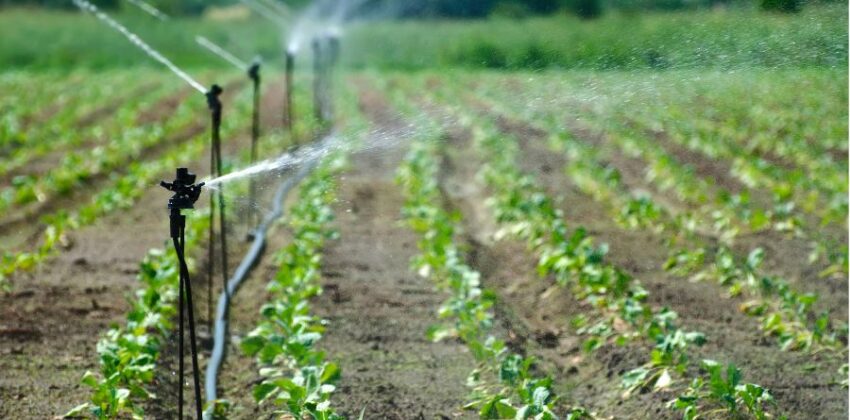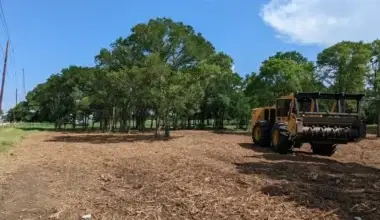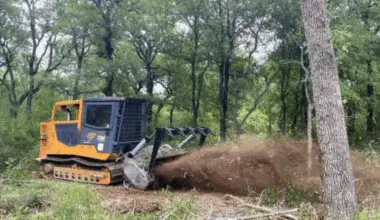Farm irrigation systems are an essential component of modern farming.
There are numerous farm irrigation systems available to help you keep your fields hydrated and productive.
We’ll go over the fundamentals of irrigation and the ideal irrigation strategy for every farm below.
An irrigation system for farms is a way to water crops.
There are many different kinds of irrigation, which can be broken down into the categories of surface irrigation, sprinkler irrigation, and micro-irrigation.
Any landowner or farmer may find it challenging to choose an irrigation system or upgrade an existing one to one that is more effective.
This article will help you differentiate between the various systems and identify the factors that influence which method is best for you.
What is a farm irrigation system?
A farm irrigation system is a method of delivering water to crops and plants in an agricultural setting. The purpose of the system is to provide the necessary water for plant growth and development, especially in areas with limited rainfall or drought conditions.
Irrigation is essential for the survival and growth of crops, as it ensures that plants have an adequate supply of water to carry out essential metabolic processes. With irrigation, crop yields and quality can be significantly protected, and in some cases, it can lead to crop failure.
Types of farm irrigation systems
There are several different types of farm irrigation systems, each with its own unique set of benefits and drawbacks. This post will discuss the most common types of farm irrigation systems: surface irrigation, sprinkler irrigation, and drip irrigation.
Surface irrigation
Surface irrigation is the oldest method of irrigation and is still widely used today. It involves the flooding of a field with water, allowing the water to infiltrate the soil through gravity.
This irrigation method is relatively simple and inexpensive to install, making it a popular choice among farmers with limited budgets. However, it can lead to water loss through evaporation and runoff, which can be a significant drawback, especially in areas with limited water resources.
Sprinkler irrigation
Sprinkler irrigation is another popular method of irrigation that involves the use of sprinklers to spray water over crops. This irrigation method is commonly used in large-scale commercial agriculture and in smaller gardens.
One of the main benefits of sprinkler irrigation is that it allows farmers to water crops in a more targeted manner, which can help to reduce water loss through evaporation and runoff. However, sprinkler irrigation can be costly to install and maintain, a significant drawback for farmers with limited budgets.
Drip irrigation
Drip irrigation is a method of irrigation that involves the delivery of water to plants through a network of tiny tubes or emitters. This method of irrigation is the most efficient, as it delivers water directly to the roots of the plants, reducing water loss through evaporation and runoff.
Drip irrigation systems can be customized to fit the needs of individual farmers, which can help to maximize water usage and increase crop yields. However, drip irrigation can be costly to install and maintain, which can be a significant drawback for farmers with limited budgets.
When choosing an irrigation system, farmers should consider factors such as the size of the farm, the type of crops grown, water availability, and budget. Surface irrigation is the most inexpensive to install but can lead to water loss, and it could be more efficient than other methods, while sprinkler and drip irrigation are more efficient but also more expensive.
Benefits of installing a farm irrigation system
Installing a farm irrigation system can significantly impact crop yields, water usage, and overall farm efficiency. Irrigation systems are beneficial in areas with limited rainfall or drought conditions, as they provide the necessary water for plant growth and development.
One of the most significant benefits of installing a farm irrigation system is increased crop yields. Irrigation systems provide a reliable source of water for crops, which can help to increase crop growth and development. Additionally, irrigation systems can be customized to meet the specific needs of individual farms, which can help to maximize water usage and increase crop yields even further.
Another benefit of installing a farm irrigation system is improved water usage. Irrigation systems can be designed to be more efficient in water usage, which can help conserve water resources. Drip irrigation, for example, is a highly efficient method of irrigation that delivers water directly to the roots of the plants, reducing water loss through evaporation and runoff.
Installing an irrigation system can also improve the quality of crops. Crops that receive the right amount of water at the right time tend to be more resilient and have a better taste. Drip irrigation, for example, can provide a consistent water supply, which can help to improve crop quality and increase crop yields.
Irrigation systems can also improve the efficiency of farming operations. With an irrigation system in place, farmers can better control the amount of water delivered to their crops, which can help reduce labor costs and increase efficiency. Additionally, irrigation systems can be automated, which can help to reduce the need for manual labor and increase efficiency even further.
Farm irrigation systems can also reduce labor costs, and water usage and improve crop quality, leading to increased profits for farmers. They can also help to reduce the risk of crop failure due to drought or limited rainfall, which can lead to increased financial stability for farmers.
Irrigation systems can also be beneficial for the environment. They can help to conserve water resources and reduce the risk of water pollution. Additionally, irrigation systems can reduce the need for chemical fertilizers and pesticides, which can help to reduce the risk of environmental pollution.
Choosing the Right Irrigation System for Your Farm
Choosing the right irrigation system for your farm can be a daunting task, as many different types of systems are available. The best irrigation system for your farm will depend on various factors, including the type of crops you are growing, the size of your farm, and the climate in your area.
One of the most important factors to consider when choosing an irrigation system is the type of crops you are growing. Different types of produce have additional water requirements, and an irrigation system well-suited to one kind of crop may not be suitable for another. For example, crops like corn and wheat require much water, while crops like tomatoes and peppers require less. Choosing an irrigation system that can provide the right amount of water for your specific crops is essential.
Another essential factor to consider is the size of your farm. Irrigation systems are available in a wide range of sizes, from small systems suitable for small farms to large systems ideal for large commercial farms. The size of your farm will determine the size of the irrigation system you need, and it is essential to choose a system that is appropriately sized for your farm.
Climate is also a significant factor to consider when choosing an irrigation system. An irrigation system is essential in areas with low rainfall or drought conditions to ensure that crops receive enough water. An irrigation system may be less necessary for areas with higher rainfall, but it can still be beneficial for providing a consistent water supply for crops.
Another important factor to consider when choosing an irrigation system is the cost. Irrigation systems can vary significantly in cost and selecting a system that fits your budget is essential. Some irrigation systems can be rather expensive, while others are more affordable. Choosing a system within your budget and providing the necessary water for your crops is essential.
The soil type is also crucial when choosing an irrigation system. Different types of soil have various water retention capacities, and the irrigation system should be designed accordingly. For example, sandy soil has a lower water retention capacity than clay soil, so an irrigation system for sandy soil should be prepared to provide more frequent and shorter watering periods.
Finally, it is essential to consult with experts when choosing an irrigation system, as they can guide your farm on the best type of system and help with design and installation. They can also provide information on the latest technologies, such as precision irrigation, which can help to conserve water resources and reduce costs.
If you need an irrigation system for your farm, look no further than D&H Land Management. With a team of experts with years of experience and qualifications in irrigation system design and installation, you can trust that your system will be installed correctly and function optimally.
D&H Land Management understands that every farm is unique, so they provide customized irrigation solutions for each farm. We consider factors such as the size of the farm, the type of crops grown, water availability, and budget to ensure that the system is tailored to meet the specific needs of your farm. And once the system is installed, we provide professional maintenance to ensure it continues to run smoothly.






